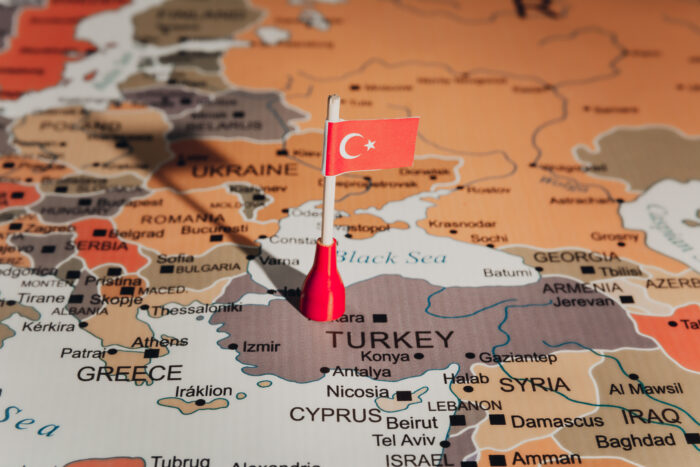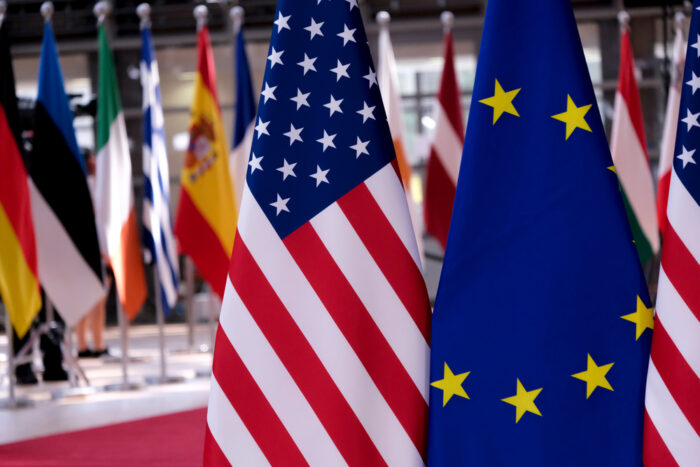The Progressive Post
Centennial celebrations in Turkey amidst polarisation

The Republic of Turkey is poised to mark its centennial on 29 October 2023, yet a palpable air of celebration appears conspicuously absent. While flags and posters dot the landscape, a handful of corporations are unveiling previously commissioned commemorative videos, and a select few musicians are debuting compositions in honour of the occasion, the prevailing sentiment remains curiously muted. What accounts for this lacklustre enthusiasm?
The choice of slogans by both the secular opposition and the conservative government offers valuable insights into the underlying dynamics. The opposition’s exuberance is encapsulated in the slogan “The second century of the Turkish Republic”, which implies a sense of continuity from the republic’s inception. In contrast, the government favours the slogan “The Turkish century,” not celebrating the Republic’s founding under Kemal Atatürk but heralding the advent of its second century under the leadership of Tayyip Erdoğan.
None of this is surprising given the level of affective political polarisation in Turkey as was highlighted by the Dimensions of Polarization in Turkey Survey conducted by the German Marshall Fund of the United and İstanbul Bilgi University Migration Research Center in 2020. 67 per cent of the respondents in the survey suggested that they would not like their children to be friends with the kids of someone who supports the party they feel most distant from. 85 per cent of the participants suggested that the supporters of their party were honourable while only 4.1 per cent said the same thing for the supporters of the political party they feel distant to. 40 per cent of the respondents say that the political party they feel most distant to should not be allowed to rally in the province in which they live. These examples highlight the social distance between different political groups in Turkey, their negative perceptions of each other and intolerance towards one another.
“The roots of polarization in Turkey arguably go back to the foundation of the republic in 1923 – which resulted in top-down westernisation – or even to the first westernisation efforts in the Ottoman empire in the late 18th century”. In its heyday, the Ottoman Empire, predecessor of Turkey, reigned supreme not only in what we today know as the Middle East but also in Europe. However, as the 18th century neared its close, the Ottomans came to a sobering realisation: they had been outpaced by the ascendant European powers. Within the corridors of Ottoman power, a dichotomy emerged. On one side, a faction of the Ottoman elite argued fervently for the adoption of European customs and practices, while on the other, there were staunch proponents of a return to the Empire’s cultural roots. This dialectic between the ‘reformists’ and the ‘restorationists’ would sow the initial seeds of polarisation within Turkey.
The birth of the Republic in 1923 marked a pivotal juncture in the burgeoning polarisation of Turkey. In the aftermath of the First World War, the Ottoman Empire found itself on the defeated side, ceding vast swathes of its territory and sovereignty to foreign powers. Under the resolute leadership of Kemal Atatürk, a triumphant liberation movement was set in motion, and it didn’t conclude there. In November 1922, the monarchy was dismantled; in October 1923, the Republic was ushered in; 1924 witnessed the abolition of the Caliphate; 1930 brought the acceptance of universal suffrage, and 1937 enshrined secularism as a constitutional cornerstone. These far-reaching reforms which paved the way to others catalysed the transformation of Turkey into a secular nation-state. However, this top-down and unyielding reform process was not embraced with enthusiasm by all strata of Turkish society. Certain social cohorts, such as the Kurds, expressed discontent with the nation-building process, while different segments of the populace objected to the secularisation of society. This ignited a kulturkampf that continues to this date.
Polarisation is not unique to Turkey. Indeed, across the globe, in places as diverse as the United States, Brazil, Hungary, India, Japan, Poland and Russia, polarisation looms as a significant political force. Wherever it takes root, polarisation chips away at the foundation of pluralistic democracy, ultimately clearing a path for the rise of populist politics. These developments can be observed in Turkey in an accelerated fashion.
Today in Turkey, polarisation takes on various forms. To begin with, Turkish citizens often find themselves in echo chambers, wherein their existing beliefs are reinforced, while dissenting voices are systematically excluded. These echo chambers not only stem from polarisation but also serve to intensify the divide, as the lack of communication between polarised groups only deepens their mutual prejudices. This, in turn, paves the way for politicians to launch smear campaigns against their adversaries with greater ease. Furthermore, the impact of polarisation extends to more extreme scenarios, such as the segregation of urban areas along political and cultural lines, further limiting opportunities for interaction between these polarised groups.
Although addressing polarisation is undeniably challenging, it need not be Turkey’s inexorable destiny. The nation is now experiencing a growing recognition of this issue, with various civil society organisations actively engaged in its resolution. They possess the capacity to make headway in mitigating polarisation through raising awareness, providing training on polarising attitudes and how to avoid those, the establishment of platforms fostering interaction and opportunities for collaboration among polarised factions across Turkey and creating an ecosystem in which politicians would feel compelled to limit their polarising tactics.
The Turkish Republic’s birth from the ashes of a fallen empire amid exceptionally unfavourable conditions is a remarkable accomplishment worth commemorating. Nevertheless, Turkey’s journey toward fulfilling its true potential remains unfinished and continues in its second century, with the mitigation of polarisation being a critical factor in this ongoing endeavour.
Photo credits: Shutterstock.com/tolga ildun




